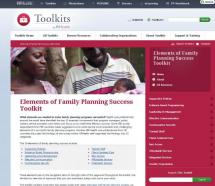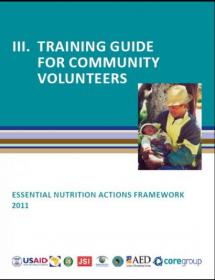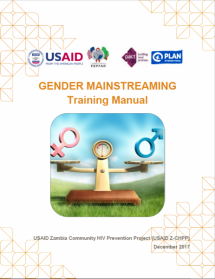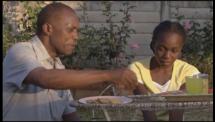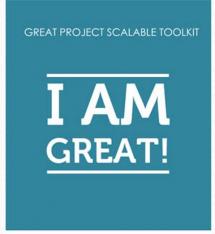Elements of Family Planning Success Toolkit
This toolkit contains more than two dozen audio and video interviews with family planning experts, up-to-date background and reference materials, job aids and other tools, PowerPoint presentations, books, manuals, briefs, case studies, fact sheets, newsletters, pamphlets, posters, project reports, reviews, and teaching and training materials. Resources listed are from more than 80 organizations.
Source: Johns Hopkins University Center for Communication Programs, FHI 360, ICF International, WellShare International
Date of Publication: March 25, 2019
SIMILIAR RESOURCES
Tools
Examples
- HTSP Online Course
- The HTSP Implementation Kit
- Training Resource for Male Condoms
- How to Reach Young Adolescents Toolkit
- Open WHO
- Integrating SBCC into Service Delivery Programs
- Toolkit for Transition of Care and Other Services for Adolescents Living with HIV
- Men's Reproductive Health Curriculum
- Menstrual Hygiene in Emergencies Toolkit
- How-To Guide for a Social Network Diffusion Intervention to Overcome Social Barriers to Family Planning

